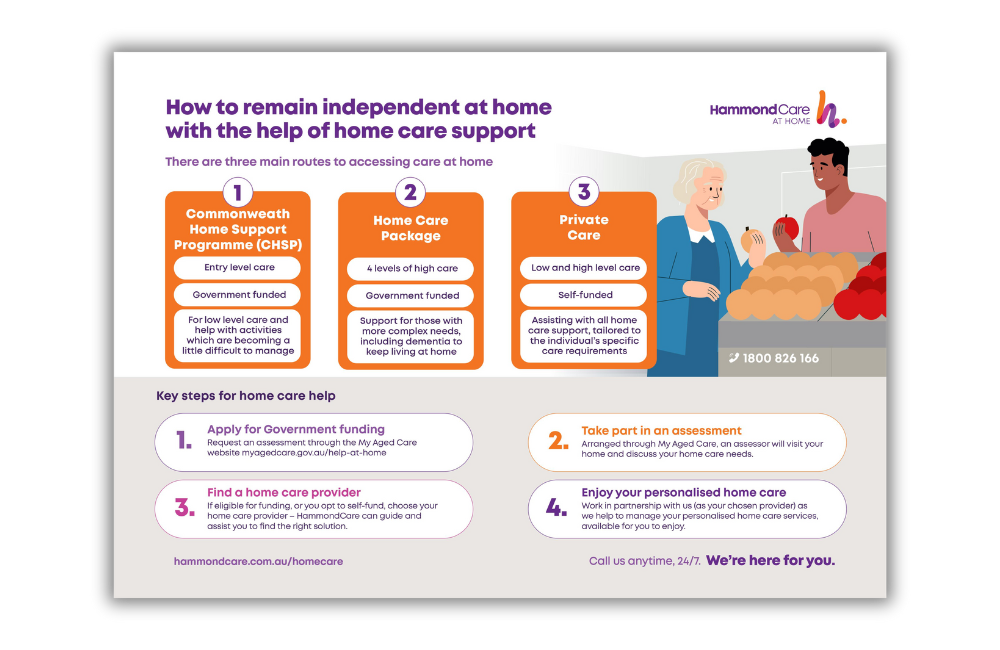Unexpected gains of quality support at home
Unexpected gains of quality support at home
Blog Article
All Regarding Home Care Providers for Individuals With Disabilities: NDIS Registered Assistance
Home care solutions under the NDIS play a pivotal role in supporting people with handicaps. These services are created to boost everyday living via tailored aid, varying from personal care to mobility support. Comprehending just how to browse these choices can be intricate. This introduction checks out the numerous elements of NDIS home treatment, from offered solutions to the selection of providers, highlighting necessary considerations for those seeking assistance. The trip toward empowered care begins here.
Comprehending the NDIS and Its Function
The National Disability Insurance Coverage Scheme (NDIS) functions as a transformative structure created to provide assistance and solutions for people with handicaps. Established to enhance the top quality of life and assurance equitable accessibility to vital sources, the NDIS equips participants by using individualized plans tailored to their unique demands. It aims to promote freedom, enabling people to pursue their individual objectives and aspirations.Through an organized approach, the NDIS allots financing for various assistances, including education, employment help, and community participation. This all-inclusive plan not only concentrates on instant care however also highlights long-term developmental end results. By advertising selection and control, the NDIS motivates participants to pick their recommended solution providers, ensuring that treatment straightens with their worths and choices. Ultimately, the NDIS represents a considerable dedication to enhancing the lives of people with handicaps, fostering inclusivity, and constructing a much more helpful culture.
Sorts Of Home Care Provider Available
Various kinds of home treatment services accommodate people with disabilities, largely focusing on individual treatment help and break treatment options. Personal care help offers essential support with everyday activities, while break care supplies short-term alleviation for primary caregivers. Recognizing these solutions is important for ensuring the wellness of both individuals with disabilities and their households.
Personal Treatment Help
While steering day-to-day life can provide obstacles for people with impairments, individual care help provides essential support customized to their special needs. This sort of home care solution includes a variety of activities designed to advertise self-reliance and enhance high quality of life. Personal care aides aid with day-to-day tasks such as bathing, clothing, brushing, and toileting, making certain individuals preserve individual hygiene and convenience. They may also assist with meal preparation, medicine management, and flexibility assistance. By giving individualized care, these experts empower people to engage even more fully in their social activities and everyday routines. In general, personal treatment assistance plays a significant duty in fostering dignity and freedom for those with handicaps, permitting them to thrive in their home atmosphere.

Break Care Options
Break treatment acts as an essential resource for family members and caretakers of people with impairments, offering short-term relief from the needs of day-to-day caregiving. This sort of solution can take different types, consisting of at home respite care, where qualified professionals go to the home to help with treatment jobs. Conversely, families might go with facility-based break treatment, where people get care in a specific setting, allowing caregivers to take a break. Additionally, some companies provide emergency break solutions for unexpected conditions. These choices not only aid relieve caretaker anxiety but additionally advertise the well-being of people with disabilities by supplying them new experiences and social interaction. In general, reprieve care plays a crucial duty in supporting both caretakers and those they care for.

Exactly How to Access NDIS Home Care Solutions
Accessing NDIS home care services involves understanding the eligibility criteria established forth by the National Handicap Insurance Coverage Scheme. People must navigate an organized application process to secure the required support tailored to their needs. This area will clear up both the eligibility needs and the actions associated with looking for solutions.
Qualification Requirements Clarified
To receive NDIS home care solutions, people have to fulfill certain eligibility requirements that assess their scenarios and demands. Applicants should be matured in between 7 and 65 years and have a irreversible and considerable special needs that affects their capacity to carry out everyday tasks. Furthermore, they should be an Australian person, an irreversible local, or hold a Protected Special Category Visa. The NDIS requires evidence of the disability, commonly through clinical assessments or reports. In addition, individuals need to demonstrate that they call for support to take part in economic and social life. These standards assure that solutions are directed in the direction of those who genuinely require assistance, promoting freedom and enhanced high quality of life for people with disabilities.
Application Process Steps
Can I Pick My Very Own Support Workers Through NDIS?
The specific asked whether they can choose their very own support employees under the NDIS framework. Generally, individuals have the flexibility to pick support employees, fostering individualized care that aligns with their particular demands and choices.
What Happens if My Requirements Modification After Receiving Support?
They ought to connect these changes to their solution copyright if an individual's requirements change after getting support. Modifications can be made to the treatment strategy, making sure that the assistance continues to be reliable and relevant for their situations.

Exist Restricts on Just How Many Hours of Treatment I Can Receive?
The private asked about possible limitations on the variety of treatment hours got. Typically, such limitations might exist based upon particular policies or funding setups, emphasizing the relevance of examining contracts and standards on a regular basis.
Can I Utilize NDIS Financing for Home Modifications?
The inquiry of using financing for home modifications develops often. Generally, individuals may use NDIS financing for needed modifications to their homes, making sure availability and safety, section upon meeting linked here specific eligibility standards and guidelines.
Just how Do I Deal with Grievances Regarding My Home Treatment Services?
To deal with grievances about home treatment services, people must first document their concerns. After that, they can connect directly with their provider, looking for resolution, or rise the problem to relevant oversight bodies if necessary. Home care solutions under the NDIS play a critical role in supporting individuals with specials needs. Numerous kinds of home care solutions provide to people with disabilities, mainly concentrating on personal treatment aid and respite treatment alternatives. support at home provider. Personal care support offers vital support with day-to-day tasks, while respite care offers momentary relief for primary caretakers. Families might opt for facility-based reprieve care, where individuals get treatment in a specialized environment, enabling caretakers to take a break. How can households properly manage the economic aspects of home treatment services for people with impairments?
Report this page